
Copernical Team
NASA Invites Media to Webb Telescope Science Briefings
 NASA will hold two virtual media briefings Thursday, Nov. 18, on the science goals and capabilities of the James Webb Space Telescope.
NASA will hold two virtual media briefings Thursday, Nov. 18, on the science goals and capabilities of the James Webb Space Telescope. The longest lunar eclipse in centuries will happen this week, NASA says
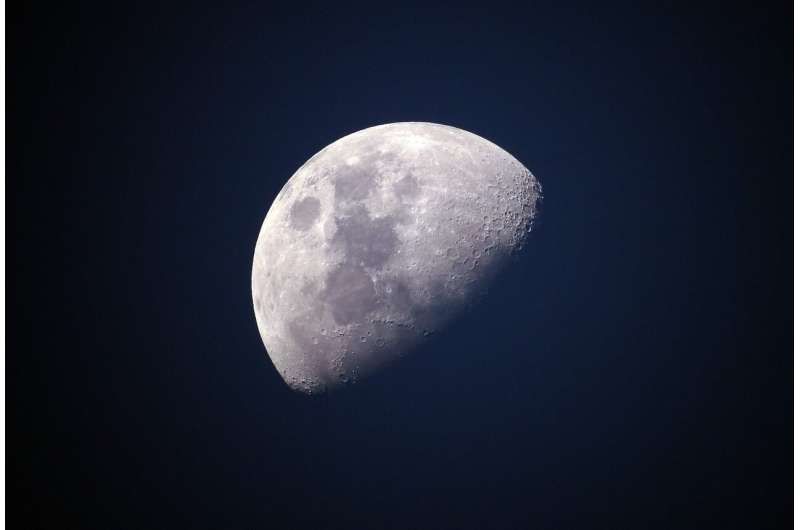
You can see the longest partial lunar eclipse in hundreds of years this week.
The "nearly total" lunar eclipse is expected overnight Thursday, Nov. 18, to Friday, Nov. 19, NASA said.
"The Moon will be so close to opposite the Sun on Nov 19 that it will pass through the southern part of the shadow of the Earth for a nearly total lunar eclipse," NASA said on its website.
The eclipse will last 3 hours, 28 minutes and 23 seconds, making it the longest in centuries, Space.com reported.
Only a small sliver of the moon will be visible during the eclipse. About 97% of the moon will disappear into Earth's shadow as the sun and moon pass opposite sides of the planet, EarthSky reported.
The moon should appear to be a reddish-brown color as it slips into the shadow, NASA reported.
The eclipse will be visible in many parts of the world, including North America, eastern Australia, New Zealand and Japan, according to EarthSky.
"For U.S. East Coast observers, the partial eclipse begins a little after 2 a.m.
Russia satellite destruction put ISS at greater risk: ESA official
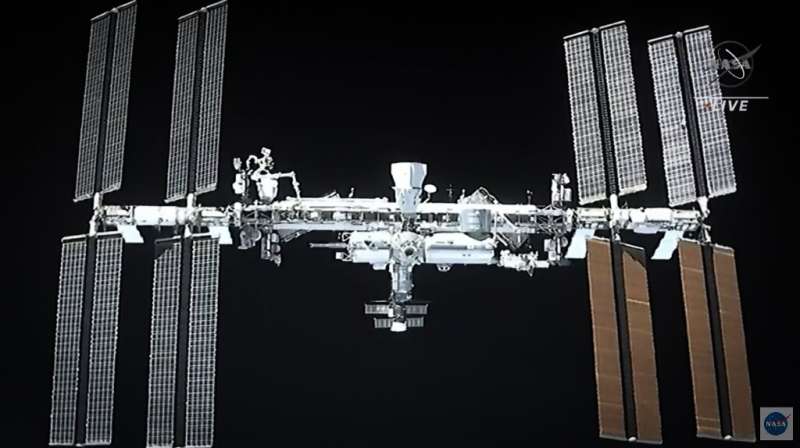
Russia's destruction of one of its own satellites generated a cloud of debris near the International Space Station (ISS) and its seven-strong crew.
For Didier Schmitt, a senior figure at the European Space Agency (ESA), Moscow's action increased the risk of a collision in space.
Question: Was this a close call for the seven astronauts—four US, two Russians and a German - aboard the ISS?
Answer: "It's difficult to say with hindsight. But what we know is that from now on, according to our sources, the risk of collision could be five times greater in the weeks, even the months ahead.
"The new debris is moving in the same orbit as the Station, which is to around 400 kilometres in altitude, at more than 8 kilometres a second. That's seven to eight times faster than a rifle bullet! So to avoid them you have to predict a long time in advance: you can raise or lower the ISS a little.
NASA TV to Air DART Prelaunch Activities, Launch
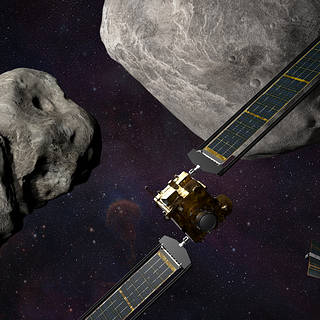 NASA will provide coverage of the upcoming prelaunch and launch activities for the agency’s first planetary defense test mission, the Double Asteroid Redirection Test (DART).
NASA will provide coverage of the upcoming prelaunch and launch activities for the agency’s first planetary defense test mission, the Double Asteroid Redirection Test (DART). Germany calls for space security rules; Russia dismisses any danger to ISS crew
 Germany's government said Tuesday it was "very concerned" by Russia's destruction of one of its own satellites during a missile test, calling for urgent measures to "strengthen security and confidence".
"We call on all states to engage constructively in this process and in the development of principles for responsible behaviour in space," the Germany foreign ministry said in a statement.
Germany's government said Tuesday it was "very concerned" by Russia's destruction of one of its own satellites during a missile test, calling for urgent measures to "strengthen security and confidence".
"We call on all states to engage constructively in this process and in the development of principles for responsible behaviour in space," the Germany foreign ministry said in a statement. Russia dismisses U.S. concerns about missile test, danger to ISS crew
 The Russian government responded on Tuesday to U.S. accusations that a missile test in space that blew apart an old satellite has endangered the lives of several astronauts on the International Space Station.
Russia confirmed that it performed a missile test to destroy a satellite that's been in orbit for almost 40 years, but rejected accusations that the resulting debris poses a threat
The Russian government responded on Tuesday to U.S. accusations that a missile test in space that blew apart an old satellite has endangered the lives of several astronauts on the International Space Station.
Russia confirmed that it performed a missile test to destroy a satellite that's been in orbit for almost 40 years, but rejected accusations that the resulting debris poses a threat France boosts space surveillance with satellites launch
 France on Tuesday boosted its space surveillance capabilities with the launch of three electromagnetic-monitoring military satellites, one of only four nations known to operate this kind of technology.
A Vega rocket carrying the Ceres satellites took off from Kourou in French Guiana, and placed them into orbit soon after.
Unlike conventional surveillance satellites, these are able to loc
France on Tuesday boosted its space surveillance capabilities with the launch of three electromagnetic-monitoring military satellites, one of only four nations known to operate this kind of technology.
A Vega rocket carrying the Ceres satellites took off from Kourou in French Guiana, and placed them into orbit soon after.
Unlike conventional surveillance satellites, these are able to loc Russia admits destroying satellite with space missile strike

Russia's space agency said on Tuesday its "main priority" was the safety of the International Space Station's crew, after the US accused Moscow of putting the astronauts under threat with a missile strike.
US officials on Monday denounced Russia for conducting a "dangerous and irresponsible" missile test that blew up one of its own satellites, creating a debris cloud that forced the ISS crew to take evasive action.
The move reignited concerns about a growing arms race in space, encompassing everything from laser weapons to satellites capable of shunting others out of orbit.
In its first comments following the US accusations, Russia's Roscosmos space agency did not deny there had been a missile strike.
How NASA's Curiosity rover is making Mars safer for astronauts
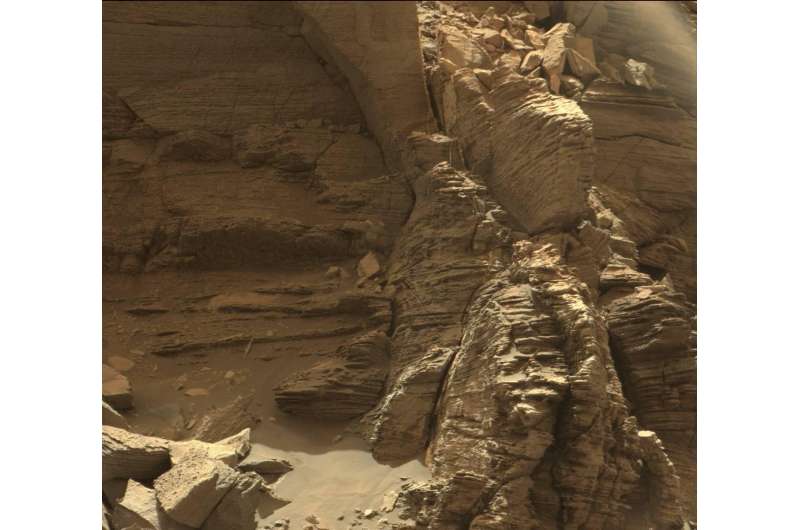
Could lava tubes, caves, or subsurface habitats offer safe refuge for future astronauts on Mars? Scientists with NASA's Curiosity Mars rover team are helping explore questions like that with the Radiation Assessment Detector, or RAD.
Unlike Earth, Mars doesn't have a magnetic field to shield it from the high-energy particles whizzing around in space. That radiation can wreak havoc on human health, and it can seriously compromise the life support systems that Mars astronauts will depend on, as well.
Based on data from Curiosity's RAD, researchers are finding that using natural materials such as the rock and sediment on Mars could offer some protection from this ever-present space radiation.
Webb’s Ariane 5 gains upper stage
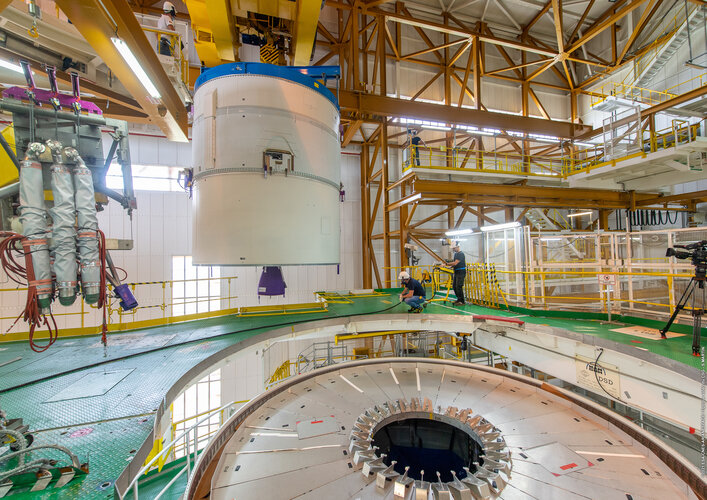 Image:
Webb’s Ariane 5 upper stage was raised vertical in the launch vehicle integration building at Europe’s Spaceport in French Guiana
Image:
Webb’s Ariane 5 upper stage was raised vertical in the launch vehicle integration building at Europe’s Spaceport in French Guiana 